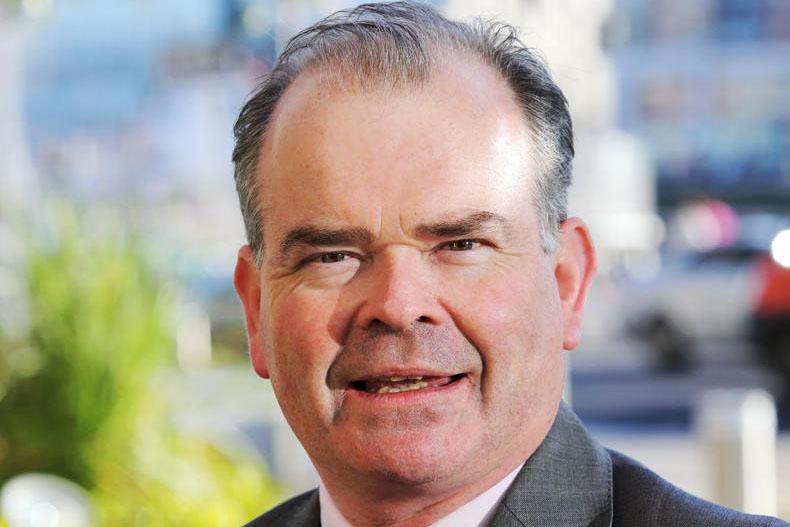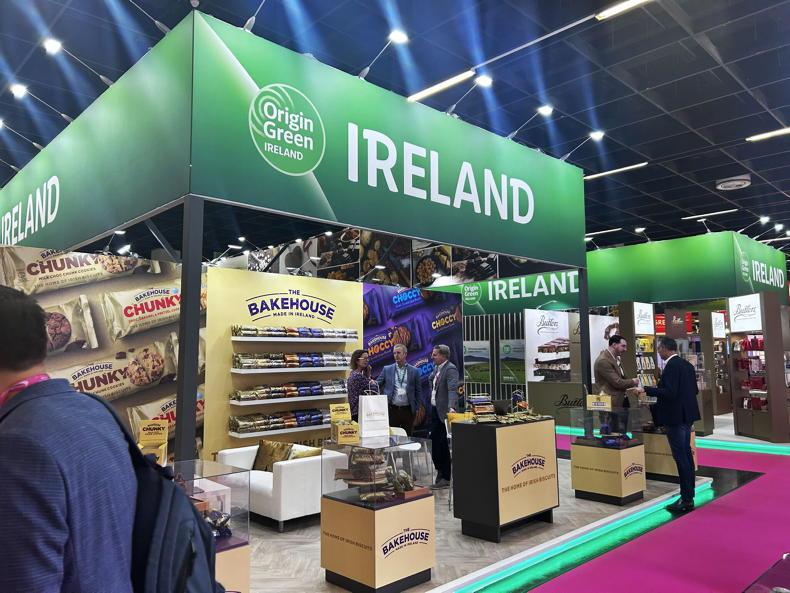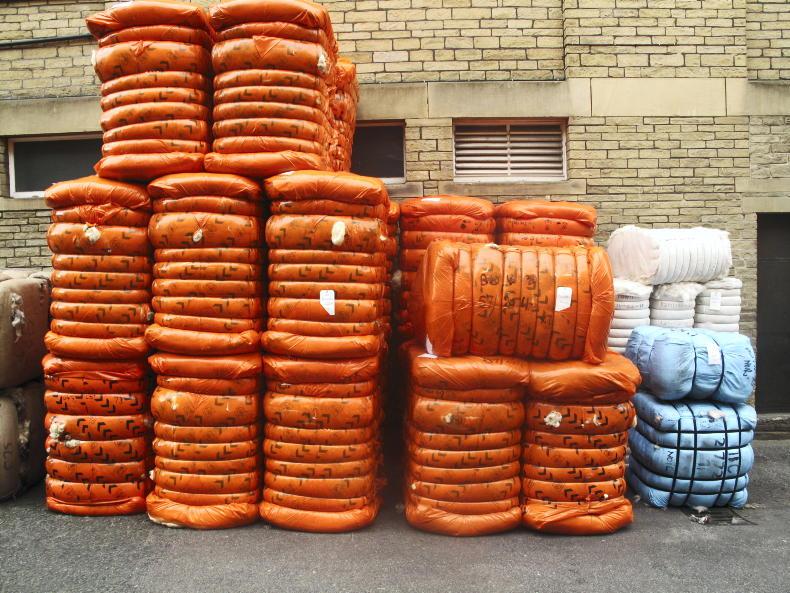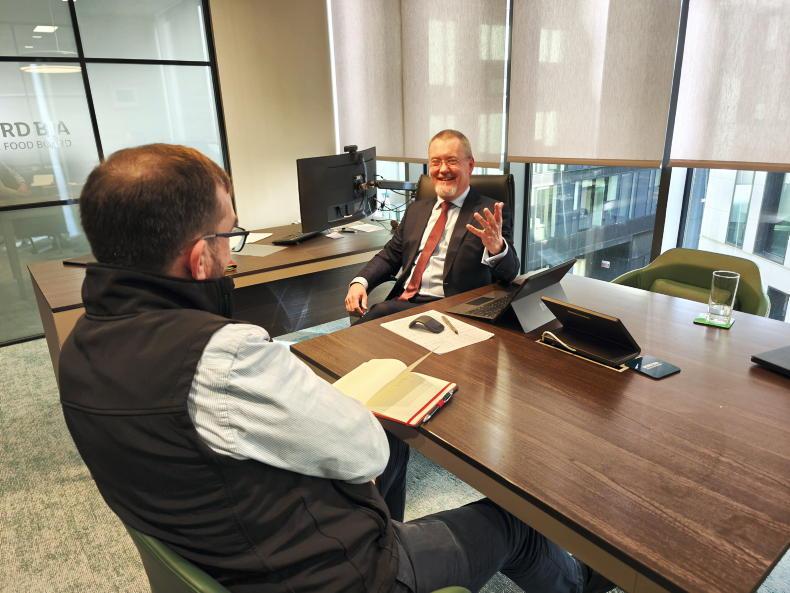For the farming community, forestry has provided an excellent asset class as part of an investment portfolio approach to maintaining and growing the farm estate. Like farming, forestry is a long-term investment and from an Enterprise Ireland perspective it is important that the industry has certainty around timber supply and price.
For an industry that has a 35 year growing phase, certainty about future conditions has a large influence on investment decisions in the sawmilling and boardmilling operations in Ireland. These operations are the engine room of the forestry industry’s supply chain and it is important to recognise the importance of the present and growing future supply of wood fibre from farmers to these operations across the rural countryside.
Enterprise Ireland works with sawmill and boardmill companies who are growing their sales by selling panel boards and door skins, engineered timber, fencing and pallet wood internationally. These companies are growing in scale and in their international reach, which has a direct effect in sustaining and growing rural employment.
Enterprise Ireland is the Government organisation responsible for the
development and growth of Irish
enterprises in world markets . We work in partnership with Irish enterprises to help them start, grow, innovate and win export sales in global markets.
The forest sector sustains employment of 12,000 people in the economy and it has export sales of circa €400m a year. Over half of these export sales come from the door skins and panel boards manufactured by Masonite and Smartply medite in Carrick-on-Shannon, Clonmel and Waterford.
Our largest sawmilling companies are led by successful and highly entrepreneurial owners who invest constantly in the most efficient equipment and vision systems available to extract the maximum yield from each sawlog. Based in rural areas around the country they have been great employers and have helped to maintain jobs in villages and towns over decades.
This foresighted dynamic allowed the industry respond to the growth phase of the construction sector during the period 2001 to 2007 with the increase in demand for timber in housing and civil engineering projects. With the collapse of our construction sector in 2008, the sawmilling companies responded to this serious challenge and rapidly looked to the UK market to stay in business through increased exports.
These sales have grown over the last five years and are crucial to paying for the large capital investment that the sector has made in their operations in Ireland. The UK is the largest market and importer for timber products in Europe and Irish companies currently have a 6% share of the market.
Since the announcement in summer 2016 of the UK’s decision to leave the European Union, there is tremendous pressure from other countries to protect and grow their market share in the UK. Our response is to ensure that the industry has the leadership, efficiencies, and sales intelligence to defend our market share and to grow it by up to 33% over the next five years.
Our strategic intent is to have the most efficient, resilient and sales orientated supply chain optimised for this close and important market.
The Forest Industries International Supply Chain (above) connects three essential zones:
Forest – forest owners, including farmers. Conversion – wood processors.Market – end zone where products are exported and sold. As part of our collaboration with the forest industry and the Department of Agriculture, the supply chain map helps to understand the interdependency of each element towards an overall efficient supply chain underpinning our sales into the UK .
We are also working with the forest industry to plan for supplying new markets outside the UK which will grow over time. While the Brexit challenges are daunting, the sector has brought together the leadership teams of the critical partners to ensure that we work together as Government, agencies and industry to manage any downsides and take advantage of the upsides developed within new initiatives.
Finally, I would encourage farmers to continue to plant trees to support their future incomes. Ireland has built an extensive and capital-intensive infrastructure and supply chain which is now exporting an increasing volume of Irish grown timber products to international markets. These increasing volumes require more planting and as custodians of the land, farmers play an ever increasing part.
Neil Kerrigan is head of global markets timber, print and packaging, Enterprise Ireland. Read more
Focus: Forestry & chainsaws
For the farming community, forestry has provided an excellent asset class as part of an investment portfolio approach to maintaining and growing the farm estate. Like farming, forestry is a long-term investment and from an Enterprise Ireland perspective it is important that the industry has certainty around timber supply and price.
For an industry that has a 35 year growing phase, certainty about future conditions has a large influence on investment decisions in the sawmilling and boardmilling operations in Ireland. These operations are the engine room of the forestry industry’s supply chain and it is important to recognise the importance of the present and growing future supply of wood fibre from farmers to these operations across the rural countryside.
Enterprise Ireland works with sawmill and boardmill companies who are growing their sales by selling panel boards and door skins, engineered timber, fencing and pallet wood internationally. These companies are growing in scale and in their international reach, which has a direct effect in sustaining and growing rural employment.
Enterprise Ireland is the Government organisation responsible for the
development and growth of Irish
enterprises in world markets . We work in partnership with Irish enterprises to help them start, grow, innovate and win export sales in global markets.
The forest sector sustains employment of 12,000 people in the economy and it has export sales of circa €400m a year. Over half of these export sales come from the door skins and panel boards manufactured by Masonite and Smartply medite in Carrick-on-Shannon, Clonmel and Waterford.
Our largest sawmilling companies are led by successful and highly entrepreneurial owners who invest constantly in the most efficient equipment and vision systems available to extract the maximum yield from each sawlog. Based in rural areas around the country they have been great employers and have helped to maintain jobs in villages and towns over decades.
This foresighted dynamic allowed the industry respond to the growth phase of the construction sector during the period 2001 to 2007 with the increase in demand for timber in housing and civil engineering projects. With the collapse of our construction sector in 2008, the sawmilling companies responded to this serious challenge and rapidly looked to the UK market to stay in business through increased exports.
These sales have grown over the last five years and are crucial to paying for the large capital investment that the sector has made in their operations in Ireland. The UK is the largest market and importer for timber products in Europe and Irish companies currently have a 6% share of the market.
Since the announcement in summer 2016 of the UK’s decision to leave the European Union, there is tremendous pressure from other countries to protect and grow their market share in the UK. Our response is to ensure that the industry has the leadership, efficiencies, and sales intelligence to defend our market share and to grow it by up to 33% over the next five years.
Our strategic intent is to have the most efficient, resilient and sales orientated supply chain optimised for this close and important market.
The Forest Industries International Supply Chain (above) connects three essential zones:
Forest – forest owners, including farmers. Conversion – wood processors.Market – end zone where products are exported and sold. As part of our collaboration with the forest industry and the Department of Agriculture, the supply chain map helps to understand the interdependency of each element towards an overall efficient supply chain underpinning our sales into the UK .
We are also working with the forest industry to plan for supplying new markets outside the UK which will grow over time. While the Brexit challenges are daunting, the sector has brought together the leadership teams of the critical partners to ensure that we work together as Government, agencies and industry to manage any downsides and take advantage of the upsides developed within new initiatives.
Finally, I would encourage farmers to continue to plant trees to support their future incomes. Ireland has built an extensive and capital-intensive infrastructure and supply chain which is now exporting an increasing volume of Irish grown timber products to international markets. These increasing volumes require more planting and as custodians of the land, farmers play an ever increasing part.
Neil Kerrigan is head of global markets timber, print and packaging, Enterprise Ireland. Read more
Focus: Forestry & chainsaws









SHARING OPTIONS